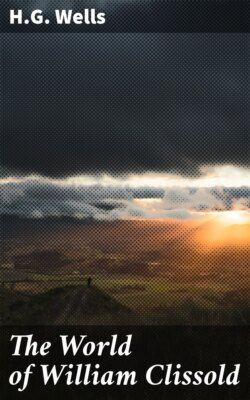Читать книгу The World of William Clissold - H.G. Wells - Страница 12
На сайте Литреса книга снята с продажи.
§ 7. IMMORTALITY
ОглавлениеTable of Contents
WHEN the curtain of death comes down, is the revue over?
So far as William Clissold goes, I think it is. I think that death is a thing I shall never experience, for when it comes to me I shall be dead. I may see it coming, I may hope for it or fear it, but I shall never know it come. I shall never know it has come just as I never know that sleep has come. I do not believe in personal immortality. In my youth I struggled against the idea of individual extinction, but now I accept it quite tranquilly. I think there may be something immortal in me, and what that is I will do my best to explain in subsequent sections, but I do not think that immortal part contains any of the distinctive factors that individualise me. The sound of my voice, the oddities of my mind, my likes and dislikes, and the great volume of my personal memories will, I think, end when my heart ceases to beat.
I have still enough greediness for personal experience to want, if not complete immortality, at least a little extension of my time. I am like a well-behaved child who is willing to go to bed but would prefer to sit up a while longer. But I can find no tittle of evidence that experience goes on after physical death. The phenomena of fainting, sleep, and unconsciousness all sustain my conviction that the immobility of the dead is also subjective. And I am quite unable to imagine any sort of living at all, any sort of conscious existence, without hands that feel, eyes that see, a sense of material substance, and a stir of bodily feeling. It is not strength but weakness of the imagination that enables people ,to think of themselves as bodiless "spirits." The idea that man is a threefold being of body, soul and spirit, all separable and mysteriously endowed with his personality, seems to me a survival of remote barbaric speculations. I can no more think of myself living on as a spirit than as living on as a moving photograph.
The decay of the established religious beliefs which wrapped the life after death in a sacred reticence has let loose much popular necromancy. I was sufficiently involved with these curiosities at one time to be a member of the Society for Psychical Research and to follow up some of the alleged evidence for personal survival after death. I found evidence of much deception and still more self-deception. And even if I had admitted the reality of all the phenomena tendered, which I would be very loth to do, they would have proved nothing except the survival of fragments of personal will and memory. Suppose a medium to produce some trivial secret between myself and some departed intimate, known to no one else; that no more proves that my friend is still mentally alive than a corrupting fragment of his face with a characteristic scar would prove his bodily survival. The mere fact of the medium being in possession of this confidence suggests helplessness and insensibility in the departed. Generally the supposed messages from the dead display great mental degeneration. The mediums produce no more than a shrivelled phantom of the sought-after dead. When Victor Hugo was summoned back from the shades, Anatole France told me, he had forgotten Hernani and Ruy Blas altogether, and acquired nothing to make up for this but the sort of moral platitudes one might get from an intoxicated concierge. If we are to believe the stuff at all, we must believe on the evidence that the next life will be no better than a tattered fragment of this. I had rather have the flame of my life extinguished at once than turned down and down to flicker at last in such a fashion.
The revelations of Sir Oliver Lodge's Raymond and of Sir Arthur Conan Doyle and the lucubrations of Mr. Vale Owen confirm this view. The effect is not so much as if they had drawn the veil from a vision of deep and mighty things, as that the curate has bought a cheap magic lantern and got an enthusiastic and humourless spinster to daub his slides. I am prepared to believe the universe can be deeply tragic and evil or wonderful and beautiful, but not that it can be fundamentally silly. On the whole my presumption that there is nothing immortal in our individualities is strengthened rather than weakened by the evidence of this cloud of all too explicit witnesses to the contrary that has arisen in the past few years.
